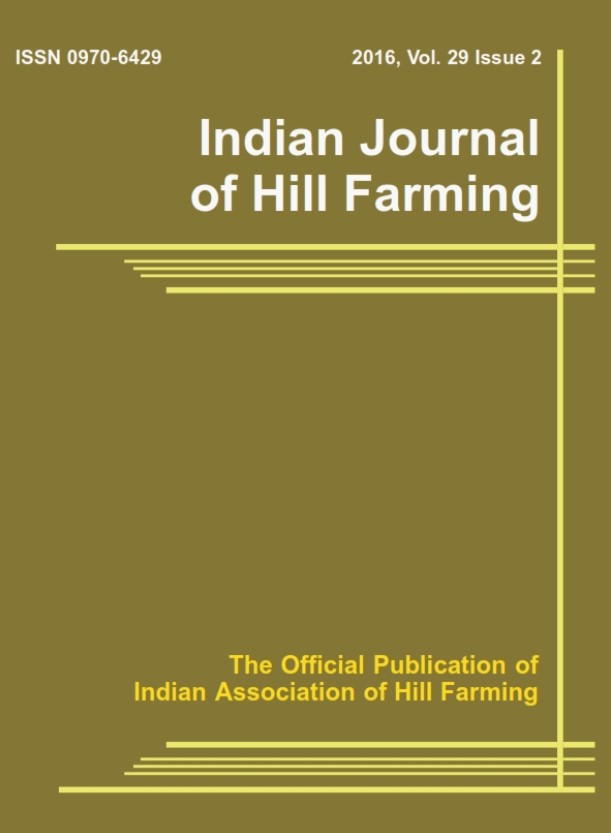Micropropagation of Citrus macroptera Montr. using explants from in vitro generated seedlings
Keywords:
Chambil, endangered citrus, in vitro propagation, Garo Hills, Meghalaya, Nokrek Biosphere Reserve.Abstract
Citrus macroptera Montr. known as ‘Chambil’ in Garo language is an endangered species which grows in wild and semi wild conditions in Meghalaya. It has great significance in the life of the Garo tribe of Meghalaya for its culinary and medicinal uses, as well as for its use in traditional rituals. The slow natural regeneration, recalcitrant seeds, lack of commercial cultivation and clearing of forest area for various developmental activities are a threat to this species and need attention for conservation. Considering these facts, in vitro trials were conducted for standardization of protocol for mass multiplication of Citrus macroptera with five explants from in vitro germinated seedlings. Among the treatments evaluated for nodal segment, MS medium incorporated with 0.5 mg/l BAP showed highest response of 91.49% with 6.04 shoots of 2.05 cm length in 6.16 days. Out of the treatments tried with shoot tip, highest response (66.24%) was observed in MS medium supplemented with BAP 1.0 mg/l producing 2.08 shoots of 1.04 cm length within 5.75 days. Among the treatments assessed for cotyledon explants, MS medium with BAP 1.0 mg/l produced the highest number of 3.88 shoots of 2.10 cm length in 19.77 days showing 73.77 % response. With callus initiation rate of 63.33%, leaf discs cultivated on full strength MS media with 0.5 mg/l of 2, 4-D produced viable callus in 7.33 days. The highest shoot bud proliferation (73.33%) was seen in this callus when grown on full strength MS medium with BAP 1.0 mg/l, which produced 11.13 shoots. Root tips of in vitro seedlings did not produce any shoots. The rooting percentage of in vitro produced Citrus macroptera shoots cultured on full strength MS medium with IBA 1.0 mg/l + NAA 1.0 mg/l was 94.44% with 5.55 roots per shoot of 4.5 cm length in 11.94 days, the highest of the many treatments taken into consideration. Seventy per cent in vitro rooted plantlets survived in open conditions. Results indicate that protocol developed for in vitro plantlet regeneration from nodal segments of in vitro raised seedlings, can be used for mass multiplication of Citrus macroptera.




